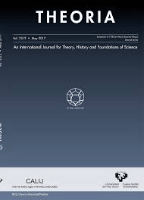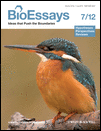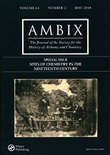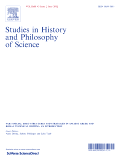
JOURNAL OF THE HISTORY OF BIOLOGY
Scope & Guideline
Connecting Past Discoveries to Future Insights
Introduction
Aims and Scopes
- Historical Analysis of Biological Concepts:
The journal publishes articles that examine the historical development of key biological ideas, theories, and practices, tracing their evolution from past to present. - Integration of Social and Cultural Contexts:
It emphasizes the significance of social, cultural, and political factors in shaping biological knowledge, exploring how these contexts influence scientific discourse and practice. - Interdisciplinary Approaches:
The journal encourages interdisciplinary research, welcoming contributions from fields such as history, philosophy, sociology, and anthropology to enrich the understanding of biological history. - Focus on Notable Figures and Movements:
A core area of the journal involves detailed studies of influential scientists, movements, and the impact of their ideas on biology and society. - Impact of Technology on Biological Research:
The journal explores how technological advancements have transformed biological research methodologies and the implications of these changes for scientific inquiry.
Trending and Emerging
- Intersections of Biology and Society:
There is an increasing focus on the relationship between biological research and societal issues, such as public health, ethics, and environmental concerns, highlighting the relevance of biology in contemporary societal contexts. - Revisiting Historical Figures and Their Impact:
Recent publications show a trend towards revisiting historical figures in biology, analyzing their contributions and how they shaped modern scientific thought and practice. - Cultural and Political Dimensions of Biological Sciences:
Emerging themes include the exploration of how cultural and political factors influence biological sciences, particularly in areas like race, gender, and colonialism. - Technological Advances and Their Historical Context:
There is a rising interest in how technological advancements, such as CRISPR and molecular biology techniques, are contextualized within historical narratives, reflecting on their implications for the future of biology. - Global Perspectives in Biological History:
The journal is increasingly publishing works that provide global perspectives on biological history, emphasizing non-Western contributions and the interconnectedness of biological sciences across cultures.
Declining or Waning
- Classical Taxonomy and Systematics:
There has been a noticeable decrease in articles specifically dedicated to classical taxonomy and systematics, possibly indicating a move towards more modern genetic and molecular approaches. - Historical Biogeography:
Research focusing on historical biogeography appears to be waning, as newer studies emphasize ecological and evolutionary dynamics over historical distributions. - Philosophical Foundations of Biology:
The exploration of philosophical concepts underpinning biology has seen a decline, likely due to a growing preference for empirical and historical analyses over theoretical discussions. - Pre-Darwinian Evolutionary Theories:
Interest in pre-Darwinian evolutionary theories has diminished, with fewer articles addressing this area as the focus shifts towards post-Darwinian developments and contemporary evolutionary biology. - Natural History Collections:
Although still relevant, there has been a decrease in the number of papers centered around the history and significance of natural history collections, reflecting a broader trend towards more applied biological research.
Similar Journals

BRAZILIAN JOURNAL OF MEDICAL AND BIOLOGICAL RESEARCH
Unlocking Innovations in Health SciencesThe BRAZILIAN JOURNAL OF MEDICAL AND BIOLOGICAL RESEARCH, published by the ASSOC BRAS DIVULG CIENTIFICA, serves as a vital platform for the dissemination of cutting-edge research in the fields of medicine and biological sciences. With an ISSN of 0100-879X and E-ISSN 1414-431X, this Open Access journal has been championing free access to vital scientific knowledge since 1997. It is indexed in Scopus with notable rankings across various disciplines, including a rank of #131 in General Medicine (79th percentile) and #20 in Pharmacology, Toxicology, and Pharmaceutics (75th percentile). Covering a broad scope of topics, the journal primarily focuses on areas such as biochemistry, biophysics, immunology, neuroscience, and physiology, with a commendable categorization of Q2 and Q3 quartiles for several relevant fields in 2023. Through its commitment to high-quality research and robust peer review processes, the journal not only consolidates its reputation within the academic community but also significantly contributes to the enhancement of scientific knowledge and innovation in Brazil and beyond. Researchers, professionals, and students will find an invaluable resource in this journal, which is pivotal for those looking to stay abreast of the latest developments in medical and biological research.

THEORIA-REVISTA DE TEORIA HISTORIA Y FUNDAMENTOS DE LA CIENCIA
Pioneering Insights in Philosophy and History of ScienceTHEORIA-REVISTA DE TEORIA HISTORIA Y FUNDAMENTOS DE LA CIENCIA, published by the Servicio Editorial Universidad del País Vasco, is a leading open access journal dedicated to advancing the fields of History, Philosophy of Science, and related disciplines since its inception in 2003. With a robust impact factor placing it in the esteemed Q1 and Q2 quartiles in its respective categories, this journal serves as a crucial platform for researchers, professionals, and students who are engaged in profound discussions and analyses of scientific foundations and historical contexts. Based in Spain, THEORIA has consistently demonstrated its commitment to scholarly excellence, achieving notable rankings in Scopus, particularly in the fields of Arts and Humanities, where it holds a rank of #169 in Philosophy and #59 in History and Philosophy of Science. The journal not only allows immediate open access to its diverse range of articles, fostering global knowledge dissemination, but also aims to bridge connections across varied philosophical inquiries and historical explorations within science. Join the dialogue today in shaping the future understanding of our scientific heritage.

Natural Sciences
Empowering researchers through open access to groundbreaking discoveries.Natural Sciences is a premier journal published by WILEY, dedicated to advancing the interdisciplinary field of natural sciences through the dissemination of high-quality research. With an ISSN of 2698-6248, this publication features original contributions that explore a wide range of topics including biology, chemistry, physics, and environmental science. Despite the current absence of an impact factor, the journal's commitment to rigorous peer-review ensures the integrity and relevance of its scholarly work. Situated at the forefront of scientific inquiry, Natural Sciences serves as a vital resource for researchers, professionals, and students looking to stay informed about the latest breakthroughs and methodologies in the natural sciences. Emphasizing open access principles, this journal strives to make cutting-edge research readily available to a global audience, fostering collaboration and innovation across disciplines.

THEORY IN BIOSCIENCES
Bridging Mathematics and Ecology for Innovative SolutionsTHEORY IN BIOSCIENCES, published by SPRINGER, is a prominent academic journal in the interdisciplinary fields of Applied Mathematics, Ecology, and Statistics. With an ISSN of 1431-7613 and an E-ISSN of 1611-7530, this journal is accessible to a global audience and facilitates Open Access options, ensuring that cutting-edge research reaches its intended audience promptly. Established in 1997 and set to converge into 2024, THEORY IN BIOSCIENCES holds a pivotal role in advancing theoretical and methodological approaches in biosciences, evidenced by its respectable placement in the Q3 quartile within the 2023 category rankings. Its Scopus rankings reflect a growing reputation, particularly in Mathematics and Ecology, making it an essential resource for researchers and professionals seeking to enhance their understanding of complex biological systems and data analysis techniques. Positioned in Germany and powered by SPRINGER's esteemed publishing standards, the journal is dedicated to fostering scholarly communication, offering a platform for innovative research that bridges theoretical frameworks and practical applications.

BIOESSAYS
Pioneering Insights in Biochemistry and GeneticsBIOESSAYS, published by WILEY, is a leading academic journal dedicated to the dynamic fields of biochemistry, genetics, and molecular biology. With an impressive impact factor and recognized as a Q1 journal in its category for 2023, it ranks 49 out of 221 in the Scopus database, placing it within the 78th percentile among its peers. Since its inception in 1984, BIOESSAYS has served as a vital platform for researchers, professionals, and students, facilitating the dissemination of pivotal findings, innovative theories, and review articles that shape the current understanding of biological sciences. Although it does not offer open access, the journal remains key for those seeking to stay at the forefront of scientific discovery and discussion within this ever-evolving discipline. With its commitment to high-quality, peer-reviewed content, BIOESSAYS continues to influence future research directions and academic discourse.

Ambix
Cultivating Insight into the Dynamics of Scientific PracticesAmbix, published by Taylor & Francis Ltd, is a distinguished journal specializing in the fields of Chemistry and the History and Philosophy of Science. With an ISSN of 0002-6980 and an E-ISSN of 1745-8234, Ambix has been a pivotal platform for scholars since its inception in 1937, providing a unique interdisciplinary perspective that bridges empirical science with philosophical inquiry. The journal is recognized for its rigorous peer-review process and maintains a solid impact within the academic community, reflected in its ranking in both the Q4 quartile for miscellaneous Chemistry and Q3 for History and Philosophy of Science. Despite not being an Open Access publication, it offers crucial insights for researchers and students seeking to deepen their understanding of the dynamics between scientific practices and philosophical thought. With articles spanning various eras and themes, Ambix remains an essential resource for those exploring the historical and conceptual dimensions of chemistry and the sciences more broadly. For further inquiries, the journal’s editorial office is based in the United Kingdom, specifically at 2-4 Park Square, Milton Park, Abingdon, OX14 4RN, Oxon, England.

BIOLOGY & PHILOSOPHY
Unraveling Ethical and Epistemological Dimensions in Biological ScienceBIOLOGY & PHILOSOPHY, published by SPRINGER, is a leading journal that explores the intricate and dynamic interplay between biology and philosophy. With an impressive impact factor in the Q1 category across multiple disciplines including Agricultural and Biological Sciences, History and Philosophy of Science, and Philosophy, this journal has firmly established itself as an essential resource for researchers, professionals, and students alike. Since its inception in 1986 and continuing through 2024, BIOLOGY & PHILOSOPHY fosters critical inquiry and discussion, inviting contributions that advance the understanding of biological sciences from philosophical perspectives. Although it operates under a traditional subscription model without Open Access options, its high Scopus rankings—#38 in Philosophy and #14 in History and Philosophy of Science—underscore its significance and influence in contemporary research. For those keen on delving deeper into the ethical, epistemological, and conceptual challenges posed by biological research, this journal serves as a compelling platform for groundbreaking scholarship.

STUDIES IN HISTORY AND PHILOSOPHY OF SCIENCE
Advancing Understanding of Scientific Thought Through TimeSTUDIES IN HISTORY AND PHILOSOPHY OF SCIENCE, published by Elsevier Science Ltd, is a leading academic journal dedicated to the exploration of historical and philosophical dimensions of science. With both an ISSN of 0039-3681 and E-ISSN of 1879-2510, this esteemed journal has established itself as a pivotal resource since its inception in 1970 and continues to publish cutting-edge research reflecting the evolution of scientific thought. Situated in the United Kingdom, it is recognized for its high-impact contributions, boasting a Q1 ranking in both History and History and Philosophy of Science categories as of 2023. Researchers in the humanities will benefit from the journal’s rigorous analysis and insightful discussions, as evidenced by its competitive Scopus rankings—placing it in the 96th and 83rd percentiles in their respective fields. Although not an open-access journal, it maintains a commitment to scholarly excellence, aiming to foster a deeper understanding of the interconnections between historical context and philosophical inquiry in the scientific domain, making it an invaluable resource for students, professionals, and researchers alike.

INTERDISCIPLINARY SCIENCE REVIEWS
Exploring the Nexus of Science and Society.INTERDISCIPLINARY SCIENCE REVIEWS, published by SAGE Publications Inc, is a prominent journal that serves as a pivotal platform for the convergence of insights across various domains, including the history and philosophy of science, interdisciplinary studies, and social sciences. Established in 1976 and continuing its legacy through 2024, this esteemed journal actively promotes innovative research and critical discussions, earning it a commendable Q2 ranking in key categories such as History and Philosophy of Science and Multidisciplinary, reflecting its influential contributions within the academic community. With a solid impact factor that highlights its relevance, INTERDISCIPLINARY SCIENCE REVIEWS is dedicated to fostering access to cutting-edge scholarship, although it currently does not offer open access options. The journal’s noteworthy rankings in Scopus further affirm its standing, making it an essential resource for researchers, professionals, and students seeking to explore interdisciplinary approaches to complex scientific inquiries.

Bollettino di Storia delle Scienze Matematiche
Connecting Past Insights with Future DiscoveriesBollettino di Storia delle Scienze Matematiche, published by FABRIZIO SERRA EDITORE, stands as a vital platform for the exploration of the rich history and philosophical underpinnings of mathematical sciences. With its origins tracing back to 2003, this journal primarily serves as an interdisciplinary forum where historians, philosophers, and mathematicians converge, reflecting the complex interplay between mathematics and its historical context. Although classified within the Q4 quartile for both the History and Philosophy of Science and Mathematics categories in 2023, the journal continues to stimulate critical discourse and encourage new avenues of research that challenge traditional narratives. While it is not an open-access publication, it is recognized for its scholarly rigor and contributes essential insights to the academic community, particularly those engaged in the nuanced study of mathematical practices through time. Researchers, professionals, and students alike will find valuable resources within its pages to inform their inquiries and broaden their understanding of the historical trajectory of mathematical thought.